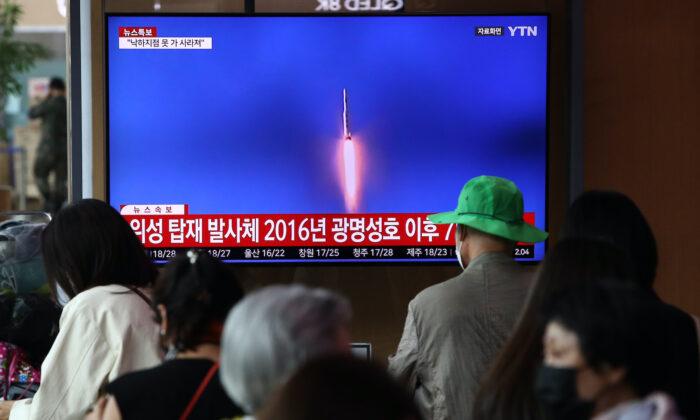The United States and South Korea on Friday issued a joint cybersecurity advisory against Kimsuky, a North Korean hacking group accused of stealing “high-tech” information for North Korea’s satellite development.
“North Korean hacking organizations, including Kimsuky, have been directly or indirectly involved in North Korea’s so-called satellite development by stealing cutting-edge technologies worldwide related to weapon development, satellites, and space,” the ministry stated.
The U.S.-South Korea advisory says that Kimsuky has operated under the Reconnaissance General Bureau—North Korea’s military intelligence agency and sanctioned by the United Nations Security Council—since 2012.
It states that North Korean cyber actors used “social engineering” tactics to enable computer network exploitation against individuals working in research centers, academic institutions, and news organizations.
“These North Korean cyber actors are known to conduct spearphishing campaigns posing as real journalists, academics, or other individuals with credible links to North Korean policy circles,” it states.
“The DPRK employs social engineering to collect intelligence on geopolitical events, foreign policy strategies, and diplomatic efforts affecting its interests by gaining illicit access to the private documents, research, and communications of their targets.”
DPRK is an acronym for North Korea’s official name, the Democratic People’s Republic of Korea.
The advisory warns that Kimsuky actors may also impersonate investigative agencies or law enforcement officials to deceive a target into believing that their email account has been involved in an illegal incident.
North Korea Vows to Bolster Spy Capabilities
Kim Yo Jong, the sister of North Korean leader Kim Jong Un, has vowed that her nation’s military reconnaissance satellite will soon be launched into space and begin its mission, the state-run Korean Central News Agency (KCNA) reported on Thursday.
Her remarks followed North Korea’s failed attempt to launch a spy satellite into space on Wednesday. The rocket reportedly crashed into the West Sea of Korea due to the “abnormal start of the two-stage engine.”
The United States urged all countries to condemn the launch and to call on North Korea to engage in “serious negotiations,” saying it was a brazen violation of multiple U.N. Security Council resolutions.
However, Kim argued that if North Korea’s launch is to be condemned, then all countries that have already launched thousands of satellites, including the United States, should also face denunciation.
Kim said that her nation does not see the need for dialogue and intends to persist with counteractions in an offensive manner. She vowed that North Korea would intensify efforts to develop spy capabilities, KCNA stated.
“We are well aware of the protracted nature of the confrontations with the U.S. and will make all efforts to bolster up war deterrent in an all-inclusive direction, being conscious of the long-term threats and challenges,” she added.
Japan and South Korea issued emergency alerts in certain areas after detecting North Korea’s satellite launch. Before the launch, Japan had warned that it would shoot down North Korea’s rocket if it entered its territory.
Nuclear envoys from South Korea, Japan, and the United States spoke on the phone following the launch and said they would continue to monitor the situation “with a high sense of vigilance.”






Friends Read Free